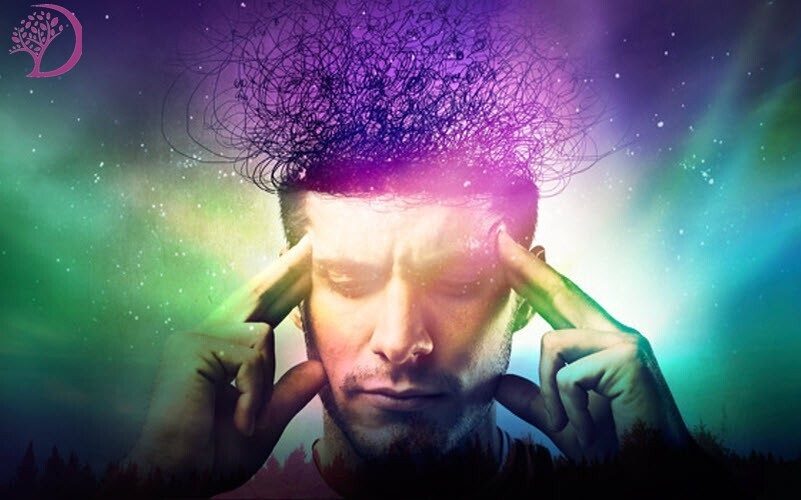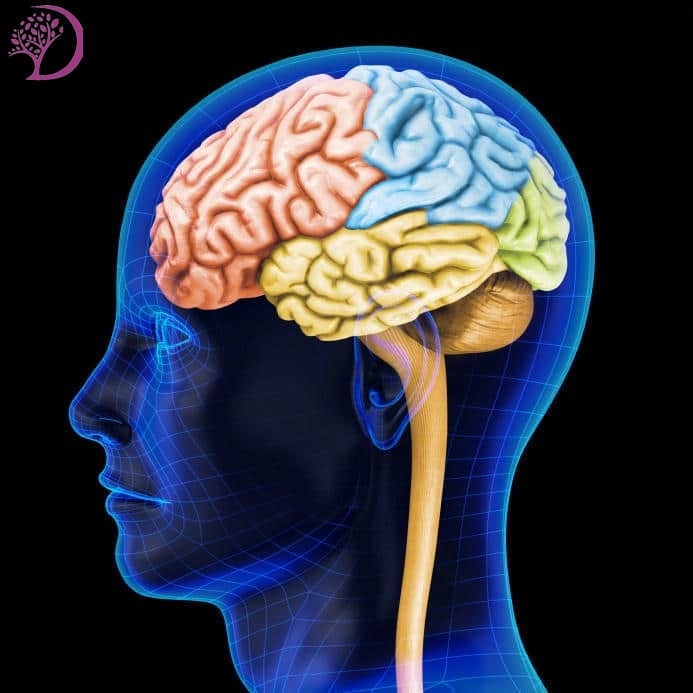You know that there are psychological reasons behind dreams of all kinds, whether they are a vision, a dream or a nightmare, even if those dreams do not have a clear expression or have no expression at all, these psychological reasons may contribute to determining the closest interpretation of a dream, and many scientists have studied dreams and their causes and put an interpretation of most of the dreams that a person sees in a dream, trying to explain this phenomenon in detail, but there is still some complexity about that and we show you what Here is some information about it through our website.
Definition of dreams
- Before addressing the presentation of any psychological reasons behind dreams, we have to define the dream and put a clear and specific meaning for it, as many scientists have differed in determining the meaning of the dream, and here is that:
- Some scientists state that dreaming is nothing but a set of thoughts that exist in a person’s mind as a result of events or situations he went through and were stored in the subconscious mind to be discharged in another form during sleep.
- Some also explain its meaning as a means of emotional discharge and memory processing with its countless different events and thoughts.
- Another team of scientists believes that it is just a response to the psychological and physical changes that occur in the body that are automatically translated within the dream.
- Although it is felt that the dream took a long time, the duration set by scientists for the dream ranges from 5 minutes to 20 minutes at most.
- Many scholars have been preoccupied with dreams and their interpretation since ancient times, including the interpretation provided by the Babylonians and Sumerians in this field.
- Many civilizations have also relied on the interpretation of dreams to serve as a divine revelation to them, preaching and alienating them and giving them signals to carry out the tasks of the state.
Psychological reasons behind dreams
You know that there are psychological reasons behind dreams that have been listed as follows:
Physical stimuli during sleep

These physical stimuli during sleep are to alert a person to an event or discharge of energy during his sleep, including the following:
- When a person needs to enter the open air, he may dream about it or see himself swimming in a sea or river.
- Increasing a person’s sexual desire, for example, may make them dream dreams with sexual stimuli as well.
A way to escape psychological censorship
Some may see in their dreams some things that they are unable to achieve in reality as a result of various pressures, and here you are:
- When someone thinks about speaking and revealing what’s going on in their head, they may sometimes stop themselves because of societal traditions or laws that refuse to do so.
- From here, the psychology of dreams intervenes in weaving what is going on in your mind in your dream and emptying that from inside as if you have already spoken what is going on inside you
Self-defense
A person may also see in a dream that he is defending himself by hitting a person or shouting at another or the like, and this may be due to the relationship between the psychological state and dreams:
- There are also psychological reasons behind dreams of self-defense.
- Perhaps someone is exposed to any psychological or nervous stress that can affect the psychology of their dreams.
- If someone is beaten or humiliated and cannot regain their rights, it may cause that feeling to be discharged in their dreams.
- He may not see in his dream the same faces that hurt him, but he discharges his energy in dreaming with the same beatings and humiliation he suffered.’
Your Day Events
You can also see in the events of your day some people and events that catch your attention and thus see them in your dreams, including:
- When you see someone with a stylish appearance or talk in a way that catches your eye, there is a chance that you will see them in your dreams.
- You may see this person in your dreams in the same form or differently and perhaps symbolically than him.

The effect of childhood memories
In fact, our old childhood memories are closely linked to our dreams of growing up, which documents the existence of psychological reasons behind dreams, for example:
- When you see in your dreams frequently that you eat cakes and sweets in abundance, it may indicate that you wanted to do so in your childhood, but you were prevented from doing so for your own safety.
- More than one person also narrates seeing a frequent dream running in the streets naked of his clothes, and psychologists explain that he was also prevented from doing so in his childhood, so he sees him in his dream.
Dreams in Islam
Muslim scholars have been interested in dreams and their interpretation as much as possible, but they have been warned against expressing them without knowledge or study, and Muslims have divided dreams into:
- Vision: It is from God Almighty, and some of them are promising or harbingers of evil.
- Dreaming: The Prophet mentioned it, saying: (The dream is from the devil), that is, it is the hadith of the devil that is hated by a person during his sleep.
- Nightmare: As well as pipe dreams, which appear in a dream as a result of psychological factors and through which what the seer saw in his wakefulness appears, which confirms the relationship between the psychological state and dreams.
Read more about: How do I know if a dream is a message from God?
The meaning of the psychology of dreams
The psychology of dreams means interpreting the relationship between the psychological state of the seer and the dream he sees, and scientists and psychologists differ in interpreting the meaning and reality of dreams in general, and here you are:
Sigmund Freud and the Book of Dream Interpretation
Sigmund Freud believes that dreaming is the unconscious that a person sees during his sleep as an expression of what he feels in his wakefulness and mentions the following:
- Freud attributes each dream to what he may be living in reality, for example, seeing a dream of someone flying, explaining that he needs more freedom in his real life.
- He sees dreaming as a means of fulfilling the desires that the seer has always wanted to achieve in reality.
- Freud put the term dreamwork on the matter of interpreting the symbols and meanings of unconscious dreaming on the ground.
- Freud linked the psychological state with dreams significantly through his book (Interpretation of Dreams).
- Freud emphasizes that there are psychological reasons behind dreams that must be understood according to the person himself in order for the dream to be interpreted with ease.
Carl Jung’s interpretation of dreams

As for Carl Jung, he is one of Freud’s disciples, who was able to formulate a new approach to him in the world of dream interpretation.
- Jung agrees with his mentor Freud that all dreams have clear meanings and interpretations that must be expressed to understand those dreams.
- Jung disagrees with Freud in that dreaming is a means for a seer or dream to achieve what he wants to reach in reality.
- Young emphasizes that there are psychological reasons behind dreams in general, including the dream of a young man driving a car with his father, who lives under his wing, and drives recklessly and hits a wall.
- Young explains that despite the young man’s good relationship with his father, he wants to get out of his father’s control and become independent of his personality.
Calvin Hall’s interpretation of dreams
Calvin Hall also talked about the psychology of dreams and their relationship to the personality itself, including the following:
- Hall mentions that dreaming of darkness or snow indicates the dreamer’s feeling of loneliness.
- When parents actually direct and annoy a teenager, he may see them as annoying in his dream.
- He sees that everything that disturbs our thinking in reality may affect our dreams and records those things as psychological causes behind dreams that cause them to happen.
Does the psychological state affect dreams

Many psychotherapists seek dream interpretation to treat patients by understanding and interpreting dreams in psychology.
- Psychologists have used the method of dream therapy to understand the psychological state that patients are experiencing.
- For example, some therapists believe that seeing a person fly in a dream indicates his need for freedom and independence.
- Seeing the dreamer himself in a test or interview unable to answer questions may indicate that he is in a stressful situation and needs to make a decision about it.
- Once the therapist is sure that there are psychological causes behind the dreams and tries to interpret them, he can treat the psychopath well.
Read more about: Interpretation of seeing the sky in a dream.
Types of dreams in psychology
It is worth noting that there is a close relationship between the psychological state and dreams and that dreams in psychology also have more than one type, perhaps the most prominent of which are the following:
Recurring dreams
The repetition of dreams in psychology in the same pattern and shape with some minor differences is known as recurring dreams, which is one of the forms of dreams in psychology, and here is what is related to that as follows:
- Repetition of dreams can be great for some if the dream expression is good and its interpretation pleases the seer.
- While there are some of them that have bad meanings and a person cannot bear to see them repeatedly.
- Often, these dreams are related to something the seer wants to achieve or a problem that he faces, and once that is over, that dream may not appear to him again.
Daydreaming

The psychology of dreams appears clearly during this type of dreams, and scientific studies have confirmed that the majority of people have frequent daydreams, and here you are:
- Studies confirm that we daydream throughout the day at a rate of one to two hours.
- Man sees these dreams when he is between sleep and wakefulness and the imagination begins to confine his thinking to a specific space.
- He begins to dream of the high palaces and hopes that he seeks to achieve, and his level of awareness begins to decrease until he loses sight of his eyes to complete his dream, but he is almost alert.
- This may have a close link between the psychological state and dreams, so whenever your psychological state is good, you start to see Anwar good in daydreaming and vice versa.
Healing dreams
Scientists have identified a set of psychological reasons behind dreams in general, especially dreams of healing, and here is the definition of that type of dreams and the reasons for its occurrence:
- Dreams of healing are one of the most prominent types of dreams in psychology and they serve as an alert to fall into a health crisis or a warning against following a habit that may harm health.
- Scientists state that there is a communication between the body and the brain during which the symptoms of fatigue are displayed before being medically identified.
- Perhaps it also appears in a dream the treatment or the appropriate method of treatment and recovery from any health problem that affects the seer.
Lucid dreams

As for lucid dreams, they are also one of the most prominent types of dreams in psychology, and here is what is related to that:
- Those lucid dreams occur when a person is asleep.
- There are two types of people who daydream:
- Whoever feels that he is dreaming wakes up and interrupts his dream.
- Another person stays in his dream to complete the dream and even influence it and make an end for him that he wants.
- The idea of paying attention and waking up from a dream or falling asleep and completing the dream depends on the psychological state and dreams that the person also sees.
- That is, if the psychological state is good, he may see a dream that he wants to complete and take his sleep in order to complete the dream.
- If his psyche is bad, he may see an unpleasant dream and get up and not want to see it.
Predictive dreams
They are dreams during which things are seen that may happen in the future and during which a person predicts something that may happen later, and here is some information about that as follows:
- These dreams are known as psychological dreams or cognitive dreams.
- This is not an aspiration to the unseen because we all know that the unseen is in the hands of God Almighty alone.
- That dream may be just a connection to ideas and events and deducing events that may or may not result later.
Nightmares and their causes

Nightmares are considered one of the types of dreams in psychology, through which the psychology of dreams appears clearly, and here are the following:
- A person sees in his dream a nightmare and wakes up from his sleep in panic and anxiety about what he saw, especially since they are disturbing dreams and affect the person’s thinking greatly.
- These nightmares are often the result of psychological stress in his real life and affected him in his dreams.
- These recurring nightmares express the clear meaning of the concept of the psychology of dreams and how reality relates to the dream as well.
- Many psychologists see nightmares as a reflex of what a person has in mind.
- It is good to be fully aware that there are psychological reasons behind dreams that will explain what the dream is about and what it also means.
- These nightmares also emphasize the existence of a close relationship between the psychological state and dreams.
Signal dreams
There are also some people who appear to have some dreams that are a signal to them about situations they are exposed to, and here is what is related to that:
- As a type of dream in psychology, this type of dream provides warning signals to them from a person or situation.
- This dream offers its owner solutions to problems he may face by sending indications and signals about it, which explains the psychology of dreams and their relationship to what the person thinks.
Where do dreams come from
Dreams come from the brain through a part known as the cerebral cortex, which receives incoming signals and translates them into dreams, which proves the existence of psychological reasons behind dreams, and here is the following:
- Signals are sent from a part of the brain called the bones until they reach the cerebral cortex.
- It also sends the same signals to nerve cells within the spinal cord and this may cause the body to be unable to move during a dream.
- It is noteworthy that the more active the hormone dopamine, the more active the part responsible for sending signals of the occurrence of a dream.
- These steps occur sequentially as soon as any psychological reasons behind the dreams appear in the person to see a known type of dream.
Any psychological reasons behind dreams are the key to interpreting those dreams scientifically, especially since there are some psychological motives that qualify us intellectually and psychologically to see some of our dreams, if not all, and many scientists have pointed to the interpretation of the relationship between the psychological state and dreams and more research and studies have been done on the psychology of dreams and the extent of their impact on what a person sees during his sleep, in any case we have to expel from our minds and souls all negative energies before bedtime in order to We have a good sleep and good dreams.
Discover what your dreams are telling you by reaching out directly to a certified dream interpreter on the Dream app. Download now!





